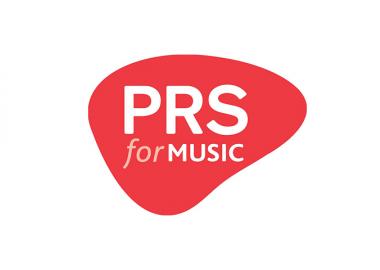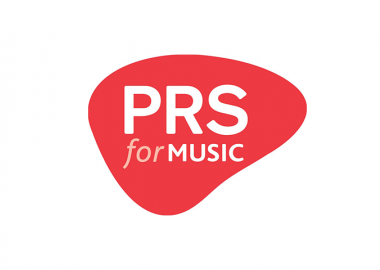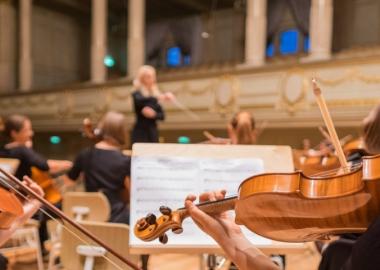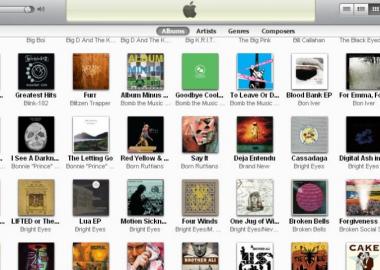When your group decides to perform a piece of music there will be copyright laws, permissions and licenses to be aware of. Part 4 of our guidance looks at how that applies to live public performances.
|
There are three different copyrights to be aware of for a piece of music.
If you are not sure who owns the copyright you can contact the Music Publishers Association For more information see Part one: What is Copyright? |
Contents:
- Performing copyrighted music
- Performing dramatico-musical works
- Printing music or lyrics in programmes
Performing copyrighted music
If the music you are performing is in copyright then royalty fees will be due for the performance. In the UK the collection of royalty fees for live performance is handled by PRS for Music who collect fees from PRS license holders and distribute them to the relevant copyright owners. This is separate to the hire agreement with a publisher.
Key point: when it comes to fees for the performances it is the copyright of the music and lyric that is important – not the copyright on the sheet music.
- So if you are performing music or lyrics that are in copyright you have to pay fees
- If you are performing music out of copyright (e.g. Mozart Symphony No. 40 in G minor) but from an edition in copyright (e.g. Bärenreiter in 2008) you don’t have to pay royalty fees as the actual music/lyrics are out of copyright.
If you are a member of Making Music you usually won’t need to get a PRS license yourself:
- Many venues have PRS licenses – if you are performing in a venue with a license then you should pay through the venue
- Making Music has a license with PRS for music which covers all our member groups when they are performing in venues which don’t have licenses, so if your venue doesn’t have a license you can pay through us.
For more information on PRS watch or read our introduction to PRS or find out how to pay PRS fees.
Performing dramatico-musical works
A dramatico-musical work is a theatrical show which has music specially written for it. This includes opera, musicals, ballet and some pantomimes and revues. Performing rights for dramatico-musical works are not handled by PRS for Music and are generally dealt with by the publisher. If you are performing music from a dramatico-musical work you should read our separate guidance on Grand Rights.
Printing music or lyrics in programmes
The printing of music or lyrics is controlled by copyright, so by the letter of the law permission should be sought from the publisher to print music or lyrics in an event programme. However, there may be circumstances where you decide to take a balanced view of the risks.
Getting permission to print music/lyrics in a programme can take time and effort (for you and the publisher) and for a small event and a small number of programmes it can be a burdensome task. The decision may depend on the nature and scale of the performance and accompanying printed programme. And of course, you should make sure you pay any PRS fees due for the live performance.
In terms of getting permission: if you are hiring music you can include the permission as part of the hire agreement. Otherwise, if you do an internet search for the name of the publisher and ‘permissions’ then you will normally find an email address or online form to complete. It can take some time so it’s best to plan ahead – and there is sometimes an admin fee.
Obviously the above only applies for music or lyrics in copyright, but remember that if words have been translated the translator may own the copyright, which will last for 70 years after their death.
We hope you find this Making Music resource useful. If you have any comments or suggestions about the guidance please contact us. Whilst every effort is made to ensure that the content of this guidance is accurate and up to date, Making Music does not warrant, nor accept any liability or responsibility for the completeness or accuracy of the content, or for any loss which may arise from reliance on the information contained in it.











